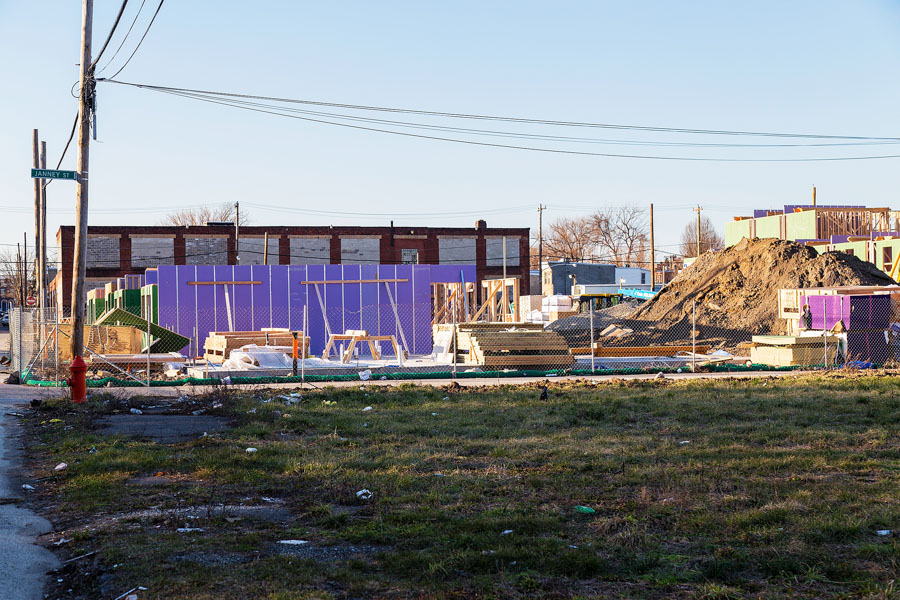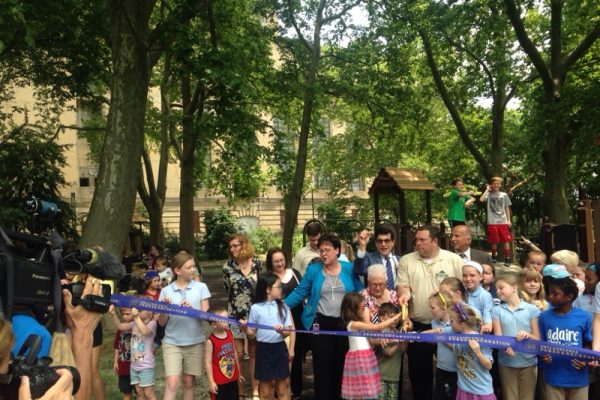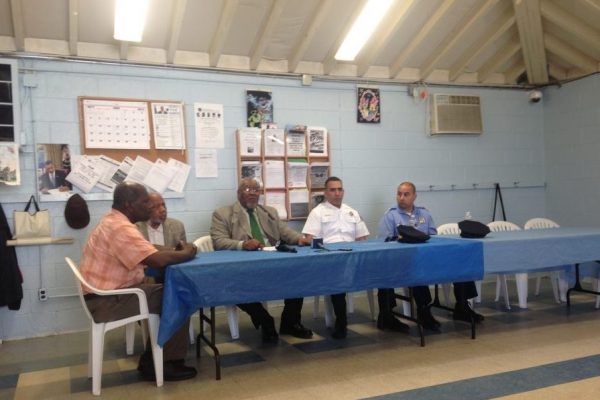Paving the Way: After Years of Development in Fishtown and Northern Liberties, New Projects Arise in Port Richmond
As Fishtown and Northern Liberties have been transformed by the influx of residential development for the past decade, Port Richmond has remained largely unchanged… until now.
On Feb. 15, an appeal to erect 12 single family homes on 3211 Mercer Street, an empty lot that currently sits behind a fence and barbed wire, has been approved by the Zoning Board of Adjustment. Less than a mile away on 2841-47 Belgrade Street, on a large vacant parcel of land, another eight homes have been proposed, four on Belgrade Street and four on Livingston Street, according to Naked Philly, a real estate blog. And by as early as fall 2016, Grace Town Homes, a development of 36 townhomes on 2201 E. Auburn Street, will be unveiled.
“The days of manufacturing have come and gone; [it’s time for] new businesses, new people to add to the tax base,” said Theresa Costello, an organizer for the Port Richmond Community Group.
The ability of new housing developments to increase a neighborhood’s financial value can be attractive. “Some residents thrive on the idea because the neighborhood is improving, and it’ll increase the value of other homes,” said Chris Somers, owner of Re/Max Access in Northern Liberties.
For Dariusz Murat, who is not a homeowner, but who has lived in Port Richmond for the last 30 years, the arrival of new homes in the neighborhood revives an old, familiar battle — the one over parking spots.
“They’re going to come here and we’re going to have a bigger problem,” he said.
In recent years, though, the pathway to residential development in Port Richmond has been plagued by obstacles. Along with a scarcity of available lots, Port Richmond hasn’t received the same return on investments compared to Fishtown, according to Somers.
“In the past the numbers haven’t really worked for that to support development because there would have been a loss,” he said.
The December 2013 North of Lehigh Neighborhood Revitalization Plan by the New Kensington Community Development Corporation (NKCDC) outlined that if a considerable amount of a neighborhood’s housing reservoir is in decay, investors will stay away due to the “perceived lack of investment.” In fact, according to the report, out of the 17 percent of the housing units that existed in 2010, most were deteriorating vacant properties.
Port Richmond residents are familiar with this story because they’re still reeling from a different battle, the one waged by Robert Coyle, a slumlord who impeded the development north of Lehigh. He not only defrauded both tenants and buyers, but created a deeper division in the neighborhood, according to Costello.
Nonetheless, Fishtown has acted as a catalyst for housing development in Port Richmond. “The Fishtown market has grown so much; Port Richmond is the next to follow,” Somers said.
And as the neighborhood is getting younger with more residents in their 20s and 30s, it’s also modernizing homes by moving toward boxy “tetris” houses or moving away from the stoop and replacing it with one slab as the single step.
In an article for Spirit News, Ben Smolin argued that by losing the stoop, we’re losing the ability to make connections with our neighbors, and ultimately losing the essence of what makes Philly, Philly.
Michelle McDermott, who has spent 46 years of her life in Port Richmond, said some social connection is already lost in the digital age, but whether or not neighbors can create meaningful connections will depend on the individual makeup of their homes.
Somers disagrees, “Ultimately it’s the people that live on these blocks that can come together, that can be block captain; you don’t necessarily need to sit on your steps, you just need to go outside.”

